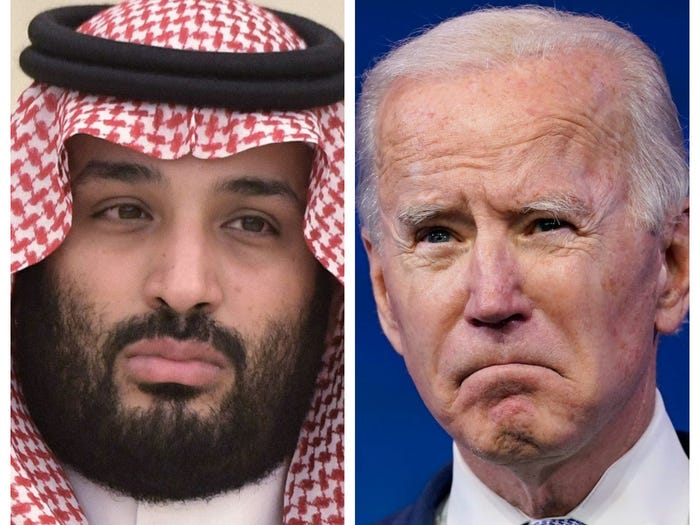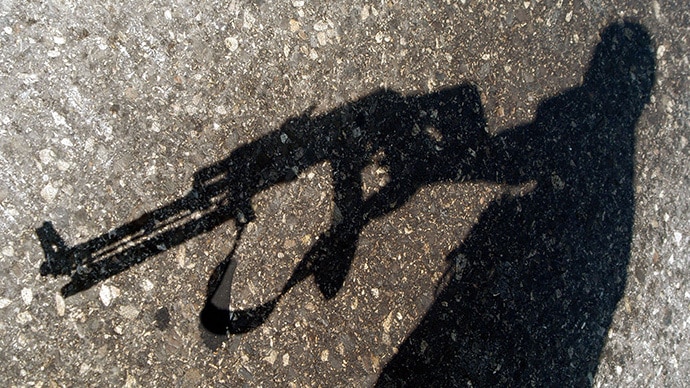Human Lives Human Rights: Biden called Saudi Arabia a “pariah” as he entered the office and promised to put human rights at the center of his foreign policy.
However, the regional experts say that he has failed to impose serious costs on Riyadh, while emboldening the kingdom’s day-to-day ruler, Crown Prince Mohammed Bin Salman, to act with impunity when it comes to respecting human rights, including the targeting of dissidents.
The administration stresses it brings up the issue of human rights in its meetings with Saudi officials, continuing to raise the murder of Jamal Khashoggi at the hands of a Saudi hit squad operating with the approval of the crown prince.
Meanwhile, it also views the relationship between Washington and Riyadh as vital.
Secretary of State Antony Blinken, standing alongside the Saudi foreign minister at the State Department on Thursday, said the two countries work together on “very significant issues, from climate to energy to Yemen to Iran.”
The secretary added that he would also talk “about the continued progress we hope to see in Saudi Arabia on rights.”
But critics argue that the Saudis are dismissing such rhetoric from the administration.
Advocates say that the disappearance and jailing of dissidents is ongoing, allegations of torture in prison are widespread and decades-long sentences are out of proportion with the alleged crimes.
“I think the Saudis are showing their utter contempt for Joe Biden’s human rights policy,” said Bruce Riedel, a senior fellow and director of the Brookings Intelligence Project who has served four presidents as an adviser on the Middle East.
“They’ve had more than eight months now to size up the administration and they’ve come to the conclusion that it’s not serious on this issue.”
Areej Al Sadhan, whose brother Abdulrahman was sentenced to 20 years in prison and a 20-year travel ban in Saudi Arabia for running a satirical Twitter account that was deemed critical of the Kingdom, is calling for the president to more forcefully hold Riyadh to account.
He’s one of 89 U.S. persons that the nonprofit group Freedom Initiative estimates have been disappeared, detained, or under travel bans at some point in 2021 in Saudi Arabia, according to a report they published this month.
In the weeks leading up to, and following, Biden’s inauguration, Saudi Arabia did appear to take steps to address some of its most criticized behavior.
This included releasing in February the prominent women’s rights activist Loujain al-Hathloul, who weeks earlier was sentenced to nearly six years in prison for protesting the ban on women driving.
Biden held a call with Saudi’s King Salman at the time where he “noted positively” the release of al-Hathloul and other Saudi-American activists.
Cathryn Grothe, a research associate at the human rights and democracy-focused organization Freedom House, said they continue to document Saudi authorities targeting outspoken critics and journalists with surveillance, disproportionate criminal penalties and harassment online and in the real world.
“There’s still hundreds of journalists and activists, bloggers, government critics who are continually harassed,” Grothe said.
“We also know, I think just in the last year, there have been reports of incredible torture in Saudi prisons, the mistreatment of those held in detention. All of this together paints a very grim picture.”
Grothe added that Abdulrahman’s case stands out in particular for the 40-year sentence, calling it “one of the longest we’ve seen handed out for, specifically an online offense, at least in the last few years.”
Varsha Koduvayur, geopolitical analyst with the security analysis firm Valens Global, said the fallout from the Biden administration’s chaotic exit from Afghanistan has made it more reliant on regional partners, with close cooperation prioritized over efforts to press for human rights reforms.
“The administration has put itself in a bind where it cannot be as forceful on human rights without fearing some loss of cooperation with Saudi Arabia or a disruption to its regional strategy,” she said.
“There was space to have pursued human rights while also preserving the areas of cooperation with Saudi Arabia, but the administration did not pursue this vigorously enough. It’s a bind of its own making, though.”
The administration is unlikely to come under much pressure from Congress.


















